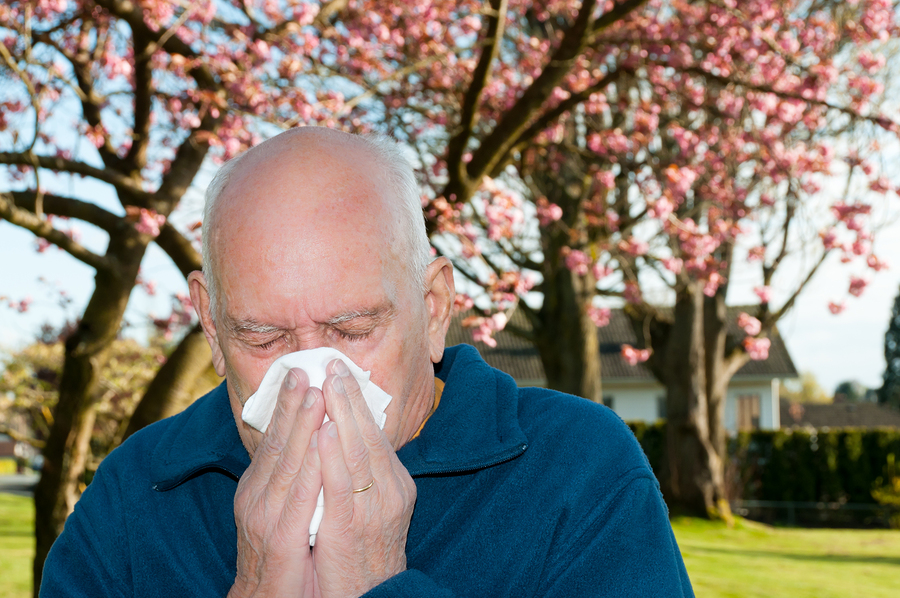August 23, 2024

While seasonal allergies can be difficult for anybody to deal with, seniors may find them more irritating. Because the immune and respiratory systems may deteriorate with age, it is critical for seniors to manage their symptoms proactively. The good news is that with the support of loved ones and home care, seniors get the assistance they need to help them breathe easier.
Identifying allergy triggers is the first step in managing seniors’ symptoms. Pollen, dust mites, and mold spores are examples of common allergies. Seniors should monitor the onset and potential causes of their allergies in order to know when to stay inside. It’s important to note that while some seniors may have dealt with seasonal allergies their whole lives, the issue might be new to others.
The amount of pollen in the air varies daily and has a big effect on how bad allergy symptoms are. Seniors can use local news stations or weather apps to check the daily pollen concentrations. As mentioned, it is advisable to minimize outside activities on days with high pollen counts, especially in the morning when pollen concentrations are often at their highest. Home care can help them alter their schedules on high pollen count days so they don’t stress about how they will get their to-do list completed.
For seniors struggling with seasonal allergies, it’s important to keep their home as allergy-free as possible. Here are some ideas that home care might suggest:
Hygiene routines can significantly help with managing allergy symptoms. For instance, seniors should be encouraged to shower after being outside when the pollen counts are higher. This removes pollen from their skin and hair. Additionally, they should change clothes so they don’t continue to breathe in the allergens. Finally, hand washing is always a must, as it helps eliminate allergens that seniors may have come into contact with.
It is simpler to control allergy symptoms when seniors stay hydrated. Having enough fluids in their system can help thin mucus and keep the respiratory system moist. Broths, herbal teas, and water are all great options for maintaining hydration.
A strong immune system can help the body handle allergens better. Some tips to help seniors increase their immunity include ensuring they eat a balanced diet, stay physically active, and get enough sleep. Home care can help them with grocery shopping to make sure they always have healthy foods on hand. Additionally, they can encourage seniors to exercise even on high-pollen days when they don’t leave the house.
Seniors’ quality of life doesn’t have to suffer because of seasonal allergies. With the help of home care and loved ones, they can effectively manage their symptoms and take pleasure in the changing of the seasons by being proactive and utilizing some of the tips above.